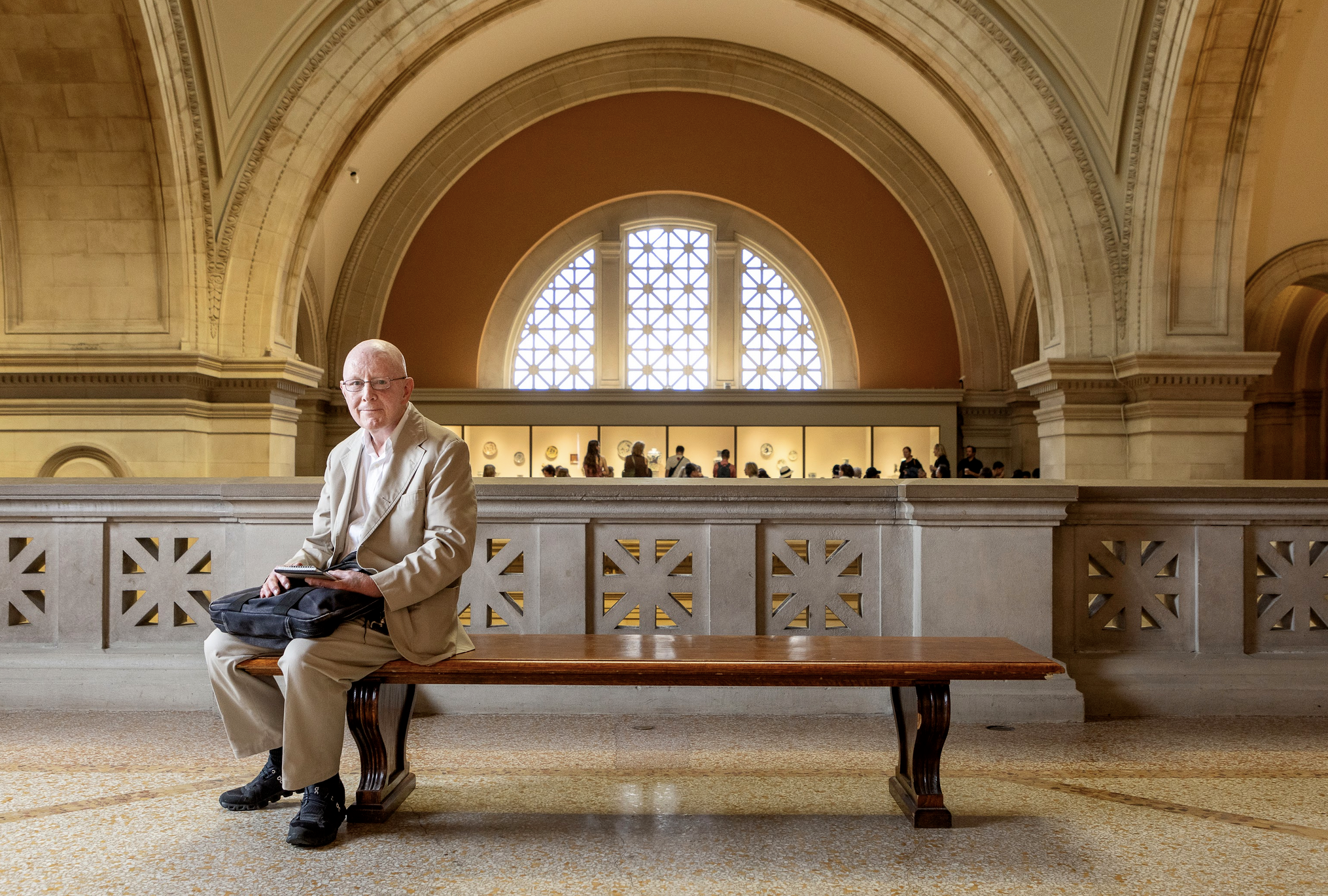Holland Cotter, co-chief art critic at the New York Times, is regifting his 2024 Rabkin Prize.
The International Association of Art Critics (AICA-USA) and Forge Project announced on Friday that Cotter has split his unrestricted $50,000 prize in half as gifts to their two organizations. It’s the first time in the Rabkin Prize’s seven-year history that a recipient has donated their winnings. Former co-chief New York Times critic Roberta Smith, however, did donate her $50,000 Lifetime Achievement Award from the Dorothea and Leo Rabkin Foundation to the Art for Justice Fund when she received the inaugural honor in 2019.
Each year, a new jury selects Rabkin Prize winners from a pool of writers nominated by arts professionals across America. Cotter was selected for the latest cycle of recipients because his oeuvre is “master class in criticism,” according to this year’s jury, who added that “Cotter ensures the reader is left with deeper meaning and understanding on the relevance of the works or cultural spaces under discussion,” in a comment provided to me.
Over email, Cotter noted the honor of receiving the prize. However, he added, because staff at the New York Times are not permitted to accept cash awards, “My choice was to turn the money down, or to move it on, which I’m very glad to be able to do.”
Founded in 2021, Forge Project is a Native-led non-profit that advances Indigenous cultural thought leadership. Based atop the unceded lands of the Moh-He-Con-Nuck in in Taghkanic, New York, Forge Project supports such scholarship through programs including its monthly newsletter and online journal, Forging. On Instagram, the group said: “Cotter’s gift to Forge will be earmarked to support programs for Native art critics and journalists, including fully funded short-term writing retreats, art-criticism residencies, and the organization’s nascent print-publishing program.”
Forging contributors Anthony Romero and Sháńdíín Brown discuss the state of Indigenous arts journalism, and how to support it, during a recent panel discussion with managing editor Frances Cathryn at Rough Draft Bar & Books in Kingston, New York. Photo by Alekz Pacheco.
“This gift sets a precedent for supporting Indigenous writers, many of whom have never had a platform in major magazines and newspapers and whose perspectives have the potential to change the field,” Forge Project executive director and chief curator, Candice Hopkins (Carcross/Tagish First Nation), noted over email. “That Holland Cotter, one of the leading critics of our time, redirected his prize to a Native organization and to AICA not only opens doors but creates a foundation for equity as the future of art criticism.”
Meanwhile, since 1950, the AICA has represented 5,000 art critics across 63 member countries, 500 of which hail from its American chapter, headquartered in New York. In its post, Forge Project noted that Cotter’s contribution to AICA-USA “will support a grant/fellowship for an emerging critic every other year.”
“The arts writing field is in a state of precarity, and the financial award that goes with our prize can be important and stabilizing for many,” Rabkin Foundation executive director Mary Louise Schumacher told me over email. “Holland’s incredibly generous gifts to Forge Project and AICA-USA supports the future of the field in a meaningful way.”
In his comments to me, Cotter also reflected on the financial instability facing many arts writers—and his hope that the donation might lend significant support.
“I have clear memories of my own beginnings as a freelance art writer many years ago. I published my first reviews for a local New York-based magazine. They paid very little, but they paid exactly on time, the first of the month. And that check, for me, carried real symbolic weight. It meant that I was being valued and respected as a professional,” he wrote. “I wish that experience for every starting-out art writer.”


